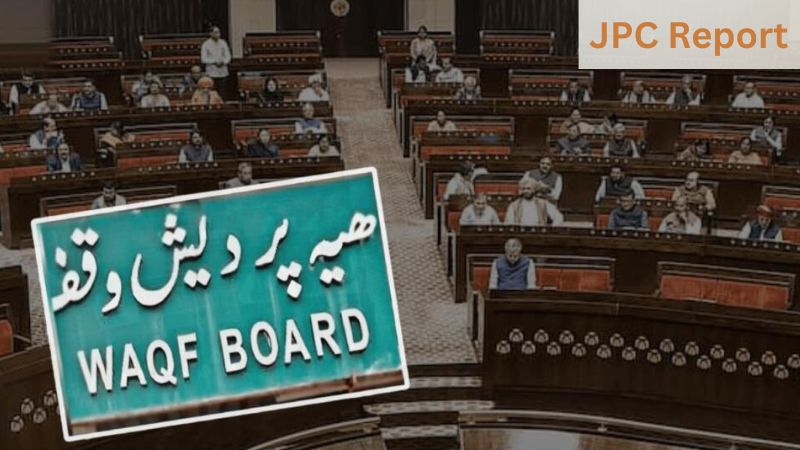On Thursday (13th February), the Joint Parliamentary Committee (JPC) on the Waqf (Amendment) Bill, 2024 tabled its report in the Lok Sabha following its tabling in the Rajya Sabha. While the opposition tried to block it to pander to its Muslim vote bank, the Upper House earlier accepted the JPC report.
#WATCH | Delhi: JPC Chairman and BJP MP Jagadambika Pal tables the report of the JPC on Waqf Amendment Bill in the Lok Sabha pic.twitter.com/qsUwFgiFzb
— ANI (@ANI) February 13, 2025
The Waqf Amendment Bill aims to streamline registration of Waqf properties. As soon as the JPC report was tabled, opposition MPs in the Upper House resorted to sloganeering while alleging that portions of dissent notes were removed.
The uproar continued as Vice President Jagdeep Dhankhar tried to read out a message from the President as proceedings resumed. The opposition eventually staged a walkout of the Rajya Sabha during the discussion on the report.
Leader of Opposition and Congress chief Mallikarjun Kharge went on to threaten that the opposition would not accept “fake reports” that “bulldoze our views.” He demanded that the report be sent back to the JPC and presented again.
“In the JPC report, many members have their dissent report. It is not right to remove those notes and bulldoze our views. This is anti-democracy… We will never accept such fake reports. If the report does not have dissenting views, it should be sent back and presented again,” Kharge brazenly alleged.
Congress President Kharge received support from several I.N.D.I. alliance MPs.
However, hitting out at the Congress President, Union Minister Kiren Rijiju highlighted that the dissent notes were attached in the appendix of the report, thus exposing the opposition of misleading the House.
“There is no deletion or removal from the report… The members of the Opposition are creating an unnecessary issue,” he said.
Also Read: Busting negative campaign, falsehoods against GST
Hitting out at the opposition, Union Minister and BJP president JP Nadda said “some were trying to fight the Indian state” – a seeming reference to Rahul Gandhi’s controversial remark last year.
What is the Waqf Bill?
The legislation proposes a complete overhaul of the governance of Waqf boards, which oversee properties donated for religious and charitable purposes by the Muslim community. Among the key provisions of the bill are the inclusion of at least two non-Muslim members on state Waqf boards and arbitration by a government official to decide whether a property is Waqf property or not.
The final report of the Joint Parliamentary Committee (JPC) was presented to Lok Sabha Speaker Om Birla on January 30 after months-long deliberations. The amended revised bill was adopted by the panel on January 29. While 14 amendments proposed by the ruling NDA members were approved, the changes suggested by the opposition MPs were rejected.
BJP MP and JPC Chairman Jagadambika Pal said the JPC presented its report in Parliament after six months of nationwide consultations.
“Today the JPC will produce its report in the Parliament. To have a detailed discussion and deliberation, the JPC was formed six months ago. In the last six months, we have prepared a report after touring the whole nation. We have adopted 25 amendments in 14 clauses,” he had said.
The Waqf Act of 1995, enacted to regulate Waqf properties, has long been criticised for issues such as mismanagement, corruption, and encroachments. The Waqf (Amendment) Bill, 2024, aims to address these challenges by introducing reforms such as digitisation, enhanced audits, improved transparency, and legal mechanisms to reclaim illegally occupied properties.
